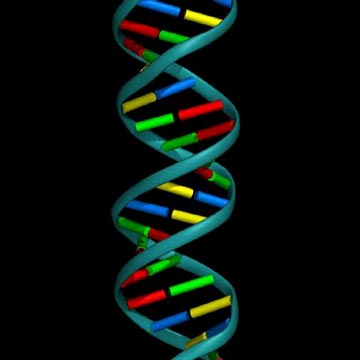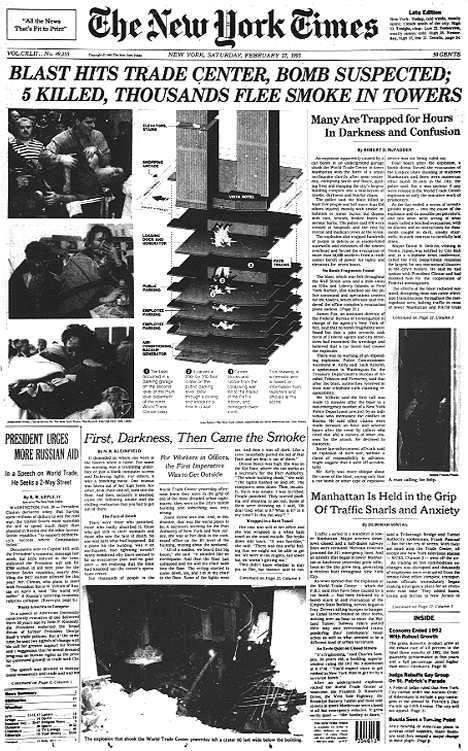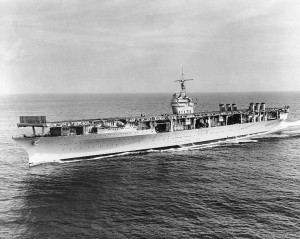Monthly Archives: February 2013
Beautiful Whitewater, City, Hip & Prosperous, New Whitewater
Choosing Whitewater
by JOHN ADAMS •

At Whitewater’s last meeting of Common Council, on 2.21.13, there was a discussion about the choosewhitewater.org website, a promotional portal for Whitewater. (The site has been around for a while, slowly adding content or links.) It’s labeled as a joint effort of the city, school district, and university, but it’s easy to see that the site is mostly a university effort.
Stylish, to be sure, but anodyne as most efforts like this are. The websites of the three institutions are similarly attractive (if varying in their features). It’s a multimedia version of a promotional flyer.
There’s no harm in that, of course. Safe is what most brochures are, and this is a site that fits that tried-and-true approach. The community planning mantra to shape a city to ‘live, work, or play’ is augmented to read, ‘Live. Learn. Work. Play.’ The addition of ‘Learn’ is your tell – it’s a campus focus.
For it all, the site is most useful to influence those deciding between Whitewater and another city, rather than simply enticing people to pick up and move. Choose Whitewater is designed to sway those who might be interested in going to school or working here, as against another pending academic or employment opportunity. The benefit to the university of a site like this, for hiring in particular, is clear.
There’s an unspoken message: Choose Whitewater (rather than another school).
It’s not wrong to say that parts of Whitewater are ‘vibrant,’ but the whole city has years ahead before that description will apply, generally. It will be true, one day, but we’re not there, now. Whitewater is now a combination of some who are lively and creative and a smaller number who are unreconstructed and hidebound.
We’ll one day be a premier destination, I’m sure, but it’s unlikely that we’ll ever be (as the website declares we presently are) a ‘premiere’ one. Whitewater is more today and will always be more than a film’s opening night.
Another point, worth making: one grows larger on one’s own, as an independent site, than would be possible as part of a collection of institutionally-backed sites. In fact, the contrast between those two paths only redounds to the benefit of those taking an independent course.
I’m not sure those behind choosewhitewater.org understand this; I’m quite sure it doesn’t matter whether they do.
One certainly should chose Whitewater, for reasons far beyond what any website might suggest. In fact, in choosing our small city, one will be choosing a place in which each newcomer can and will make a great difference.
Whitewater is no finished product, no fixed and decided landscape, but a city that a new generation will shape to their desires and tastes.
I’d hope many will join us, enriching this community in ways yet unknown to current residents. This small and beautiful city has its brightest days yet ahead, open to all who should wish to live here.
Yes, choose Whitewater.
Anderson, Cartoons & Comics
Styles of Listening
by JOHN ADAMS •
Daily Bread
Daily Bread for 2.28.13
by JOHN ADAMS •
Good morning.
It’s a cloudy day with a high of thirty-four for Whitewater.
On this day in 1953, a profound biological discovery:

…Cambridge University scientists James D. Watson and Frances H.C. Crick announce that they have determined the double-helix structure of DNA, the molecule containing human genes.
Though DNA–short for deoxyribonucleic acid–was discovered in 1869, its crucial role in determining genetic inheritance wasn’t demonstrated until 1943. In the early1950s, Watson and Crick were only two of many scientists working on figuring out the structure of DNA. California chemist Linus Pauling suggested an incorrect model at the beginning of 1953, prompting Watson and Crick to try and beat Pauling at his own game. On the morning of February 28, they determined that the structure of DNA was a double-helix polymer, or a spiral of two DNA strands, each containing a long chain of monomer nucleotides, wound around each other. According to their findings, DNA replicated itself by separating into individual strands, each of which became the template for a new double helix. In his best-selling book, The Double Helix (1968), Watson later claimed that Crick announced the discovery by walking into the nearby Eagle Pub and blurting out that “we had found the secret of life.” The truth wasn’t that far off, as Watson and Crick had solved a fundamental mystery of science–how it was possible for genetic instructions to be held inside organisms and passed from generation to generation.
Watson and Crick’s solution was formally announced on April 25, 1953, following its publication in that month’s issue of Nature magazine. The article revolutionized the study of biology and medicine. Among the developments that followed directly from it were pre-natal screening for disease genes; genetically engineered foods; the ability to identify human remains; the rational design of treatments for diseases such as AIDS; and the accurate testing of physical evidence in order to convict or exonerate criminals.
Crick and Watson later had a falling-out over Watson’s book, which Crick felt misrepresented their collaboration and betrayed their friendship. A larger controversy arose over the use Watson and Crick made of research done by another DNA researcher, Rosalind Franklin, whose colleague Maurice Wilkins showed her X-ray photographic work to Watson just before he and Crick made their famous discovery. When Crick and Watson won the Nobel Prize in 1962, they shared it with Wilkins. Franklin, who died in 1958 of ovarian cancer and was thus ineligible for the award, never learned of the role her photos played in the historic scientific breakthrough.
Google-a-Day aska about an athlete: “The famous defensive tackle who died during a game against the New York Dragons, played in how many games for the Panthers during his career?”
Nature, Weird Tales
Tumbleweeds Eat a House
by JOHN ADAMS •
Food, Restaurant, Review
Restaurant Review: Tokyo
by JOHN ADAMS •
View Larger Map
Tokyo is a family-run, Japanese-cuisine restaurant, of modest size, and a relaxed atmosphere. It’s situated on a prominent corner in downtown Whitewater, along Main Street. That first sentence establishes the perspective from which one should consider Tokyo: it’s a small, family-run Japanese restaurant. It’s a pleasant surprise, and happily recommended.
Across America, there are sushi bars and Japanese restaurants of a modern, steel and glass décor, impressive mostly in how austere – sterile, really — they are. Somehow, we’ve foolishly come to see that style as a standard by which we should view Japanese restaurants. It’s a mistake, as there’s more life and joy in a softer, soothing atmosphere like that of Tokyo.
I’ve never wanted to eat in a poorly-illuminated version of an Apple store, in any event. Tokyo is fortunately far from that prospect.
The décor is a bit aged, but pleasant. One enters to find a sushi bar directly ahead to one’s left, and a small number of tables to one’s right. A hostess & waitress seats patrons, and one has a choice of sushi, appetizers, main dishes of Japanese or Chinese cuisine, and tea, sake, beer, or wine.
The tuna and salmon sushi were both properly cooked an presented. They were the right texture, flavor, and like all the food served, presented nicely on matching white plates.
I kept to the Japanese cuisine, with main dishes including chicken and scallop teriyaki. The sauce for the teriyaki was light, flavorful but unobtrusive. Of appetizers, the fried calamari was good, but a portion of seaweed even better.
Sake is often considered rice wine, other times more like beer (I’d say it’s closer to the latter). It’s served hot — although it can be served cold — and was at the right temperature, with a mild, pleasing aroma. A sake bottle (a small carafe) and cup are suitable for one person, or two sharing. Although one sometimes hears that sake is very strong, it’s not overpowering, and nicely accompanies either fish or meat (but especially fish).
The green tea is agreeably mild, and just hot enough to enjoy with one’s meal. Water, sake, and green tea: the three will serve patrons well through any selection on the menu.
Tokyo is not a formal place, but it is an attentive one. Although one may begin with one server and end with another (from among the same family), the service is friendly and relaxed throughout.
Toward the end of my meal, our waiter offered some ice cream. That’s less common than it used to be: older diners will remember when one received something mildly sweet to end a meal. Those items may be on a menu, but are seldom offered without asking.
One would be mistaken to dismiss the gesture as overly quaint, etc. On the contrary, I think it was generous, and almost sweet.
Both visits were enjoyable; more than I might have expected. Go, open to a family-run establishment in a leisurely atmosphere, and you’ll find well-prepared and presented food. I think you’ll enjoy yourself.
Easily recommended.
Enjoy.
LOCATION: 161 W Main St, Whitewater, WI 53190 (262) 473-3000. See, Google Map directions linked at the beginning of this review.
OPEN: Daily until 10 PM (Fri & Sat to 10:30 PM).
PRICES: Sake, sushi selection, and main entrée for under $20.
RESERVATIONS: Unnecessary.
DRINKS & WINE: Sake, wine, beer.
SOUND: Moderate volume of background music – selections are soothing without being dull.
SERVICE: Friendly, attentive, at a leisurely, relaxed pace.
VISITS: Two (dinner).
RATING SCALE: From one to four stars, representing the full experience of food, atmosphere, service, and pricing.
INDEPENDENCE: This review is delivered without financial or other connection to the establishment or its owner. The dining experience was that of an ordinary patron, without notice to the staff or requests for special consideration.
Daily Bread
Daily Bread for 2.27.13
by JOHN ADAMS •
Good morning.
Snow today, with additional accumulations of one to two inches, and a high of thirty-five.
On this day in 1991, Pres. Bush suspends combat operations against Iraq, declaring that “Kuwait is liberated, Iraq’s army is defeated.”
On 2.27.1904, a fire in Madison:
1904 – Second State Capitol Burns
On this date fire destroyed the second State Capitol building in Madison. On the evening of the 26th, the generator was turned off for the night. The only lights visible were two gas jets serving the night watchman. At approximately 2 a.m., night watchman Nat Crampton smelled smoke and followed the odor to a recently varnished ceiling, already in flames. A second watchman arrived to assist, but there was no water pressure with which to operate a hose. The fire department encountered a similar situation upon arrival. Governor Robert M. La Follette telegraphed fire departments in Janesville and Milwaukee for assistance. La Follette was at the capitol, directing efforts to douse the fire and entering the burning building to retrieve valuable papers. The fire was completly extinguished by 10 p.m. the next day. Losses were estimated to be close to $1 million.
Google-a-Day serves a tennis question: “The longest tennis match in history was played over three days and included how many strokes by the American born player?”
Film, Uncategorized
Nuit Blanche
by JOHN ADAMS •
Nuit Blanche from Spy Films on Vimeo.
City, Local Government, Politics
City Leaders’ Residency
by JOHN ADAMS •
Whitewater’s 2.21.13 Common Council meeting included a discussion – and change – to the city’s standing requirement that key leaders of the city live within the city limits. After consideration, Common Council voted to establish the area of the Whitewater Unified School District as the area in which principal municipal leaders must live.
Quick thoughts:
1. Ambivalence. Although I’ve previously advocated a residency requirement for leaders, I understand and respect the counter-argument that no one should be told where to live. In fact, some of the sternest emails I’ve ever received have been from libertarians who think it’s wrong to argue in favor of a residency requirement.
I’ve previously advocated in favor of a requirement – to bind leaders closely to the city residents that pay them — but it’s an ill-fitting advocacy for a libertarian.
If the requirement goes away, I’ll not shed any tears. (I’m not lachrymose by nature, anyway.)
2. Culture. The unwillingness of leaders to reside within the city limits belies the ceaseless claims that Whitewater has had a successful, full-time managerial culture this last decade. ‘Coaching this’ and ‘vision that,’ but no one has been able to persuade all other leaders to live within the city limits.
For every time someone’s flacked how well our full-time administration has functioned, here’s a rebuttal: not well enough these last years to entice – rather than compel – leaders to live in town.
But in the end, if living here is so terribly hard for leaders that they have to be compelled to live in the city, Whitewater might as well junk the requirement altogether.
One will know when Whitewater is living up to even half the claims of its political boosters when leaders voluntarily pick homes and apartments within the city proper.
3. Partiality. Whitewater’s problem isn’t consistency, really, but partiality. Her difficulty isn’t simply doing things the same way (although that has been a definite problem), but rather doing things different ways for biased reasons.
It’s partiality that’s a problem in a small town that favors personality over principle. Feeling entitled to special treatment is not a principle – it’s (lamentable) pride.
Select access to favors and deals, the narcissism that undergirds an overweening sense of entitlement, topped with lies to prop up one’s false claims: it’s low and crude and embarrassing.
If there’s no requirement – or at least if there will be a more generous one — there’ll be one less restriction someone will try to circumvent, on the theory that he or she is entitled to do so.
This lessening of restrictions will, in this case, also free Whitewater’s police chief from her contractual obligation to live within the city limits. There’s a certain practicality there: it’s quicker to lift a requirement than wait forever while it remains unfulfilled.
4. Wisconsin. Gov. Walker proposes, and the legislature is almost certain to approve, an end to local government residency requirements in Wisconsin. As the GOP has a majority in both chambers, an adopted budget containing a ban on residency requirements is likely to come in June. Lifting of residency requirements will come quickly thereafter, if not immediately upon the new budget going into effect.
Best guess: they’ll be no local-government residency requirements in this state, soon enough.
After requirements, this municipal administration’s need to persuade leaders to live within the city whose residents employ them will still remain.
Daily Bread
Daily Bread for 2.26.13
by JOHN ADAMS •
Good morning.
Tuesday will be a snowy day, with a high of thirty-six, and a few inches of total accumulation.
Whitewater’s Tourism Council meets today at 9 AM, and her Urban Forestry Commission at 4:30 PM.
On this day in 1993, a bomb explodes at the World Trade Center, killing six, and wounding many others:

An explosion apparently caused by a car bomb in an underground garage shook the World Trade Center in lower Manhattan with the force of a small earthquake shortly after noon yesterday, collapsing walls and floors, igniting fires and plunging the city’s largest building complex into a maelstrom of smoke, darkness and fearful chaos.
The police said the blast killed at least five people and left more than 650 others injured, mostly with smoke inhalation or minor burns, but dozens with cuts, bruises, broken bones or serious burns. The police said 476 were treated at hospitals and the rest by rescue and medical crews at the scene.
The explosion also trapped hundreds of people in debris or in smoke-filled stairwells and elevators of the towers overhead and forced the evacuation of more than 50,000 workers from a trade center bereft of power for lights and elevators for seven hours.
Google-a-Day poses a history question: “Who was the former municipal judge that became the source of criminal allegations against the 42nd U.S. President?”
Film, Music
Monday Music: Film Scores
by JOHN ADAMS •
The 2013 Academy Awards presentation is now over, but here’s a fan’s (Tim De Decker’s) collection of the thirty most famous film scores.
One’s bound to agree with his selection of quite a few of them, and recognize almost all of them.
Enjoy.
Daily Bread
Daily Bread for 2.25.12
by JOHN ADAMS •
Good morning.
Monday brings partly sunny skies and a high of thirty-nine to Whitewater.
Downtown Whitewater’s Design Committee meets at 8 AM, and the Community Development Authority at 4:30 PM.
On this day in 1933, America launches her first ship built initially and expressly as an aircraft carrier:

Ranger was laid down on 26 September 1931 by the Newport News Shipbuilding & Drydock Co., Newport News, Virginia, launched on 25 February 1933, sponsored by Lou Henry Hoover (the wife of the President of the United States), and commissioned at the Norfolk Navy Yard on 4 June 1934, with Captain Arthur L. Bristol in command.
CNN dishes up a rhino at play:
Google-a-Day, meanwhile, asks about sea creatures: “What do scientists call the ‘aliens’ and odd organisms that live below the bottom of the ocean?”

